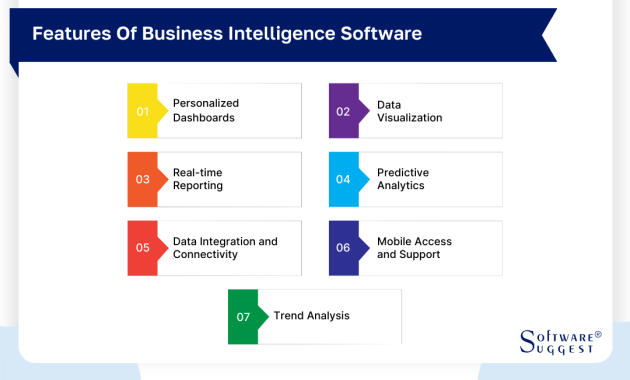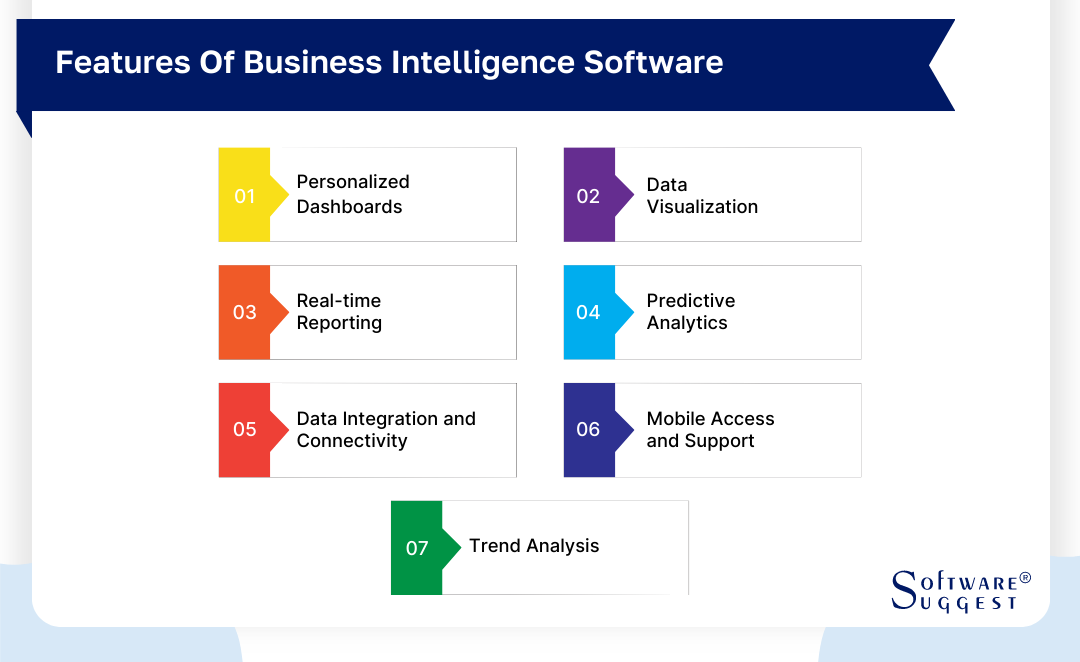
Enhance Business Intelligence Software for Operations: A Fast Track to Efficiency
In today’s fast-paced business landscape, operational efficiency is paramount. Companies are constantly seeking ways to optimize processes, reduce costs, and make data-driven decisions. One of the most powerful tools available for achieving these goals is business intelligence (BI) software. However, merely implementing BI software is not enough. To truly unlock its potential, organizations must focus on enhancing their BI software specifically for operations. This article delves into how to effectively enhance **business intelligence software for operations** to achieve rapid and sustainable improvements.
Understanding the Role of Business Intelligence in Operations
Business intelligence is no longer a luxury; it’s a necessity. It empowers businesses to collect, analyze, and interpret data from various sources. This data is then transformed into actionable insights that drive better decision-making. In the context of operations, BI software can provide a comprehensive view of key performance indicators (KPIs), such as production output, inventory levels, supply chain efficiency, and customer satisfaction. By monitoring these metrics in real-time, organizations can identify bottlenecks, predict potential issues, and proactively implement solutions. The ability to quickly adapt to changing market conditions and internal challenges is a significant advantage that **business intelligence software for operations** provides.
Identifying Key Areas for Enhancement
Before embarking on any enhancement initiatives, it’s crucial to identify the specific areas where BI software can deliver the most significant impact. This requires a thorough assessment of current operational processes and data sources. Some key areas to consider include:
- Data Integration: Ensuring seamless integration of data from various operational systems, such as ERP, CRM, and manufacturing execution systems (MES).
- Real-time Monitoring: Implementing dashboards and alerts that provide real-time visibility into critical operational metrics.
- Predictive Analytics: Utilizing advanced analytics to forecast future trends, identify potential risks, and optimize resource allocation.
- Reporting and Visualization: Creating clear, concise, and visually appealing reports and dashboards that effectively communicate insights to stakeholders.
- User Experience: Optimizing the user interface to ensure that the BI software is intuitive and easy to use for all operational personnel.
Strategies to Enhance Business Intelligence Software for Operations
Once the key areas for enhancement are identified, organizations can implement various strategies to improve their BI software’s effectiveness. These strategies include:
Data Quality and Governance
The foundation of any successful BI implementation is high-quality data. Implementing robust data quality processes is crucial. This includes data cleansing, data validation, and data governance policies. Data governance ensures data accuracy, consistency, and reliability. By focusing on data quality, organizations can build trust in their BI insights and make more informed decisions. Poor data quality will undermine any attempts to enhance **business intelligence software for operations**.
Customized Dashboards and Reports
Generic dashboards and reports often fail to meet the specific needs of operational users. Customizing dashboards and reports to reflect specific KPIs and operational workflows is essential. This involves working closely with operational teams to understand their information needs and tailor the BI software accordingly. This ensures that users receive the insights they need to make effective decisions. The customization of reports and dashboards is key to unlocking the full potential of **business intelligence software for operations**.
Advanced Analytics and Predictive Modeling
Moving beyond descriptive analytics to advanced analytics can provide significant benefits. This includes using predictive modeling techniques to forecast future trends, identify potential risks, and optimize resource allocation. Predictive analytics can help organizations proactively address operational challenges and improve overall efficiency. The use of advanced analytics is a critical step in enhancing **business intelligence software for operations**.
Mobile Accessibility
In today’s mobile-first world, providing access to BI insights on mobile devices is becoming increasingly important. This allows operational personnel to monitor KPIs and make decisions from anywhere, at any time. Mobile accessibility enhances responsiveness and agility. Consider the implications of mobile access when enhancing **business intelligence software for operations**.
Automation and Integration
Automating data collection, analysis, and reporting processes can significantly reduce manual effort and improve efficiency. Integrating BI software with other operational systems, such as ERP and CRM, can provide a more holistic view of operations. Automation and integration are key to unlocking the full potential of **business intelligence software for operations**. This reduces the time spent gathering data.
Benefits of Enhanced Business Intelligence Software for Operations
Enhancing BI software for operations offers a wide range of benefits, including:
- Improved Operational Efficiency: Streamlining processes, reducing waste, and optimizing resource allocation.
- Reduced Costs: Identifying and eliminating inefficiencies that drive up costs.
- Enhanced Decision-Making: Providing data-driven insights that support better decision-making at all levels of the organization.
- Increased Agility: Enabling organizations to quickly adapt to changing market conditions and internal challenges.
- Improved Customer Satisfaction: Optimizing operational processes to deliver better products and services to customers.
Case Studies: Real-World Examples
Numerous organizations have successfully enhanced their **business intelligence software for operations** and achieved significant improvements. Here are a few examples:
Manufacturing Company: A manufacturing company implemented real-time dashboards and predictive analytics to monitor production output, identify bottlenecks, and optimize resource allocation. As a result, they reduced production downtime by 15% and increased overall efficiency by 10%.
Retail Chain: A retail chain used BI software to analyze sales data, track inventory levels, and optimize supply chain management. This led to a 5% increase in sales, a 10% reduction in inventory costs, and improved customer satisfaction.
Healthcare Provider: A healthcare provider implemented BI software to monitor patient flow, optimize resource allocation, and improve patient outcomes. This resulted in a 12% reduction in wait times, improved patient satisfaction, and better utilization of hospital resources.
Choosing the Right BI Software and Implementation Partner
Selecting the right BI software and implementation partner is crucial for success. Organizations should carefully evaluate their needs and choose a solution that aligns with their requirements. The implementation partner should have experience in the organization’s industry and a proven track record of successful BI implementations. Consider factors such as scalability, security, and ease of use. The choice of software and partner will impact the success of enhancing **business intelligence software for operations**.
The Future of Business Intelligence in Operations
The future of BI in operations is bright. With the rise of artificial intelligence (AI), machine learning (ML), and the Internet of Things (IoT), BI software is becoming even more powerful and sophisticated. These technologies are enabling organizations to automate more tasks, gain deeper insights, and make more informed decisions. The evolution of **business intelligence software for operations** will continue to drive efficiency.
AI and ML will enable more accurate predictions and faster analysis. IoT devices will provide real-time data from various operational systems. The integration of these technologies will further enhance the value of BI software. The evolution of **business intelligence software for operations** is ongoing.
Conclusion: A Strategic Imperative
Enhancing **business intelligence software for operations** is no longer a luxury; it is a strategic imperative for organizations seeking to achieve operational excellence. By focusing on data quality, customized reporting, advanced analytics, and mobile accessibility, organizations can unlock the full potential of their BI software. This leads to improved efficiency, reduced costs, enhanced decision-making, and increased agility. The journey to enhanced operational performance starts with investing in your BI capabilities.
By following the strategies outlined in this article, organizations can transform their operational processes and drive sustainable improvements. The implementation of **business intelligence software for operations** is an investment. It yields significant returns in efficiency and profitability. Embrace the power of data. Enhance your BI software. Optimize your operations. [See also: Related Article Titles]

